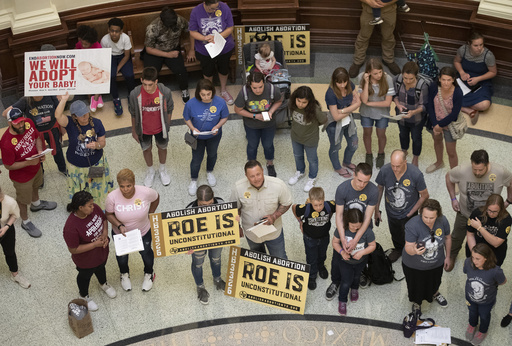Two significant court decisions announced Monday have strengthened the position of anti-abortion advocates. The U.S. Supreme Court granted Texas the authority to prohibit emergency abortions that do not comply with state law, while the Georgia Supreme Court permitted the enforcement of the state’s abortion ban.
These rulings contribute to an ongoing legal scenario that has been unfolding in various states since the U.S. Supreme Court’s decision to overturn Roe v. Wade in 2022. This landmark case resulted in the termination of the nationwide right to abortion, leading to numerous state-level bans and restrictions, as well as a flurry of new legal challenges.
Abortion remains a pivotal issue for voters as they approach the elections in the coming month, particularly in nine states where this topic is featured directly on the ballot in the form of constitutional amendments.
Here are five essential points regarding the latest developments in abortion legislation across the country.
**Texas Sees Approval to Continue Emergency Abortion Restrictions**
Following the Supreme Court’s decision in Dobbs v. Jackson Women’s Health Organization, the Biden administration directed hospitals to offer abortion services when a pregnant person’s life is at stake. However, Texas challenged this instruction, asserting that the federal government had no authority to mandate abortions that contravened the state’s complete pregnancy ban, which includes certain exceptions for the health and safety of women. In January, a federal appeals court ruled in favor of Texas, concluding that the administration overreached its legal powers. The U.S. Supreme Court upheld this ruling without offering additional explanation.
**Georgia Resumes Enforcement of Six-Week Abortion Ban**
In Georgia, a recent ruling initially blocked the state’s six-week abortion ban. However, state Supreme Court justices intervened on Monday, allowing the ban to take effect temporarily as they review the earlier judgment. This ban restricts abortions from the point when cardiac activity is detected, typically around six weeks of pregnancy, which often occurs before many women are aware of their condition. It remains uncertain how many abortions were conducted in the state during the brief period when the ban was suspended, as some clinics continued to provide services beyond the six-week limit.
**North Dakota’s Abortion Ban Ruling is Confirmed**
Additionally, a ruling from September affirming the unconstitutionality of North Dakota’s abortion ban is now finalized. Consequently, 13 states have active bans on abortion at all stages of pregnancy, down from 14. This decision primarily impacts North Dakota, which has a limited number of abortion services due to its small population. The only clinic that provided abortion services transitioned to Moorhead, Minnesota, following the implementation of the state’s ban.
**Voter Initiatives in Nine States Regarding Abortion Rights**
Apart from court rulings, the question of abortion rights is also being deliberated at the ballot box, with voters in nine states deciding on measures that could enshrine the right to abortion in their state constitutions. Initiatives in Missouri and South Dakota aim to reverse current bans on abortion throughout pregnancy, while Florida seeks to eliminate its six-week limit. Nebraska faces ballot measures proposing both the establishment of the right to abortion until fetal viability and the reinforcement of its current 12-week ban. In other states like Arizona, Colorado, Maryland, and Montana, voters will determine whether to safeguard and, in some cases, broaden abortion rights. Nevada has a measure that requires a second approval in 2026 to take effect. Furthermore, New York voters will decide on an amendment meant to prevent discrimination against individuals based on their pregnancy status, indirectly impacting abortion rights without explicitly mentioning them.
**Potential Impact on Presidential Elections**
Abortion continues to be a significant electoral issue, particularly in the presidential race. Vice President Kamala Harris is emphasizing abortion rights in her campaign, advocating for the re-establishment of protections akin to Roe. She has addressed the importance of this issue in various forums, including a podcast and a recent speech in Georgia. On the other hand, former President Donald Trump, the Republican nominee, claims credit for the conservative justices appointed under his administration who played a role in the overturning of Roe. He has voiced that the issue should lie in the hands of individual states but also indicated he would veto a national abortion ban if proposed in Congress. Although he has critiqued the Florida ballot initiative as excessively prohibitive, he has stated he would oppose it as well.



